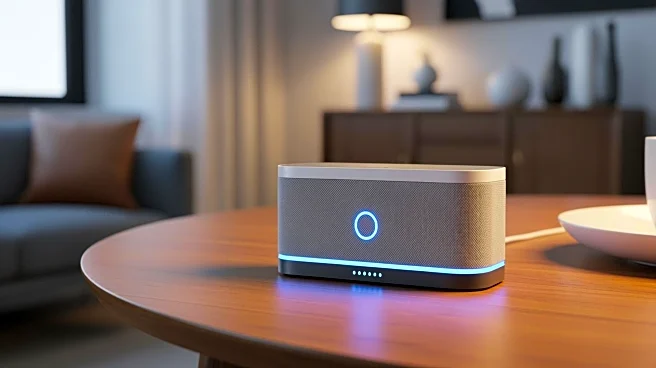What's Happening?
Ikea has announced a new line of smart home products that are compatible with the Matter standard, which aims to unify smart home technology across different brands and platforms. The new offerings include a variety of devices such as lights, sensors,
and controllers, with the Bilresa buttons and remotes being highlighted for their customizability. These products are not yet available for purchase, but Ikea's move is seen as a significant step towards democratizing smart home technology, making it more accessible to a wider audience. The announcement comes as part of Ikea's ongoing efforts to integrate smart technology into everyday home furnishings, enhancing convenience and connectivity for users.
Why It's Important?
The introduction of Matter-compatible devices by Ikea is significant as it supports the broader adoption of the Matter standard, which is designed to simplify the integration of smart home devices from different manufacturers. This could lead to increased interoperability and ease of use for consumers, potentially driving growth in the smart home market. Ikea's involvement, given its global reach and influence in home furnishings, could accelerate the adoption of smart home technology among mainstream consumers. This development may also encourage other companies to produce Matter-compatible devices, further expanding the ecosystem and enhancing consumer choice.
What's Next?
As Ikea prepares to launch these new products, consumers and industry stakeholders will be watching closely to see how the market responds. The success of these products could influence other manufacturers to adopt the Matter standard, potentially leading to a more unified and user-friendly smart home experience. Additionally, Ikea's continued innovation in smart home technology may prompt further advancements and collaborations within the industry, as companies strive to meet consumer demand for seamless and integrated home automation solutions.
Beyond the Headlines
The expansion of smart home technology raises questions about privacy and data security, as more devices become interconnected and collect user data. Consumers may need to consider the implications of increased connectivity in their homes, including potential vulnerabilities and the need for robust security measures. Furthermore, the integration of smart technology into everyday life could lead to shifts in consumer behavior and expectations, as convenience and automation become more prevalent.















